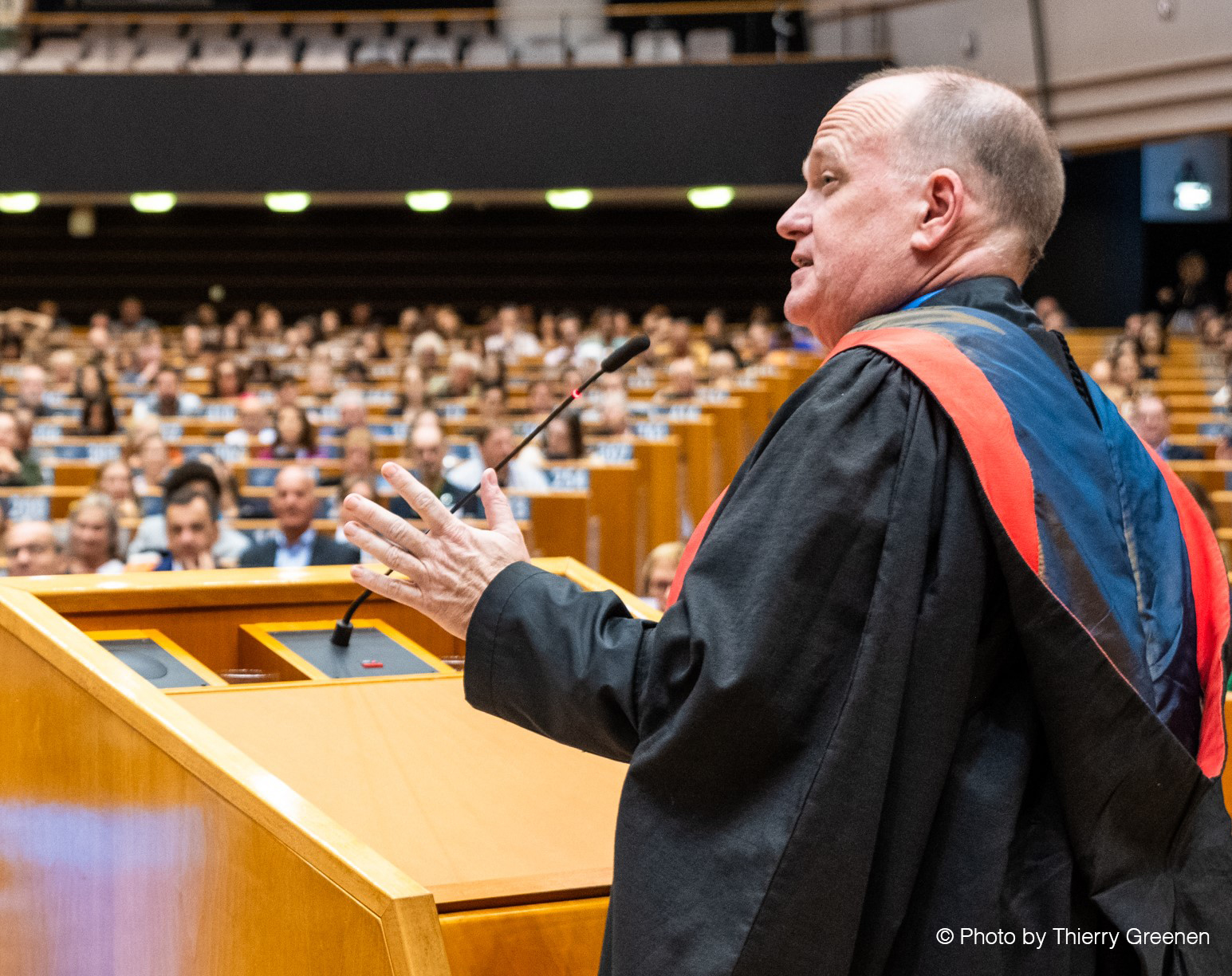You are here :
- EUTOPIA website
- Home
- About us
- Information
- Members
Exploring EUTOPIA Artificial Intelligence with Geraint Wiggins

Geraint Wiggins is a professor of computational creativity at the Vrije Universiteit Brussel and Queen Mary University of London. He leads the EUTOPIA Learning Community on Artificial Intelligence. The content of this article is extracted from his presentation at the 2023/24 EUTOPIA Academic Opening in the European Parliament.
What inspired the creation of the EUTOPIA AI Learning Community, and what are its key activities?
The EUTOPIA AI Learning Community was established to foster collaboration amongst partner universities in the field of Artificial Intelligence. Key activities include master’s and doctoral seminars in network theory, a modular course on AI, and an AI programming tournament. These activities are aimed at integrating different departments and universities, ensuring students receive specialized knowledge from experts across the consortium.
Could you explain the modular course on AI and its unique approach to tailored learning?
The modular course is a flexible system designed to cater to students from various disciplines, not just computer science. By involving experts from different universities, the course can be adapted to different needs and learning styles. This specialization allows students to access top-tier knowledge across various AI topics, enriching their understanding of AI in different contexts.
How does the tournament programming activity work, and what are its future goals?
In the “learning by gaming” activity, students program AI to play a game, such as Pac-Man. The software is uploaded to a server, where the A.I.-controlled games compete in a virtual tournament. This has been successfully implemented at UPF in Barcelona, Ljubljana, and VUB, with future plans to expand the tournament across the EUTOPIA universities. The aim is to facilitate international and cross-institutional collaboration and to teach students how to build AI capable of performing tasks that typically require human intelligence.


